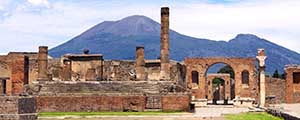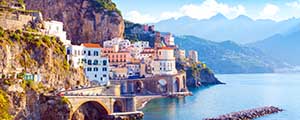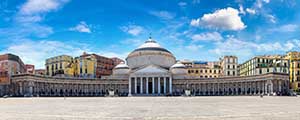
Santa Chiara Monastery Naples
The cloister garden of Monasterio di Santa Chiara in Naples

The Monastery and Church of Santa Chiara are located in the center of Naples. In particular, the beautifully tiled cloister garden of Compleso Monumentale di Santa Chiara Napoli attracts many visitors.
Info & Tickets Santa Chiara Naples |
|
| Location | Via Santa Chiara, 49/C Napoli, easily accessible by metro (line 1 and then walk another 200 meters from metro stop 'Dante') |
| Tickets |
|
| Hours |
|
| Website | Official website |
Compleso Monumentale di Santa Chiara
The construction of the monastery Compleso Monumentale di Santa Chiara in Naples began in the year 1310 at the behest of King Robert of Anjou and his wife Sancha of Majorca. Two monasteries arose, one for the Clarisses (nuns) and one for the Franciscans (French friars). The church in the historic district of Naples still retains the same Gothic style today as it used to be. With a simple facade incorporating an old rose window with openwork.
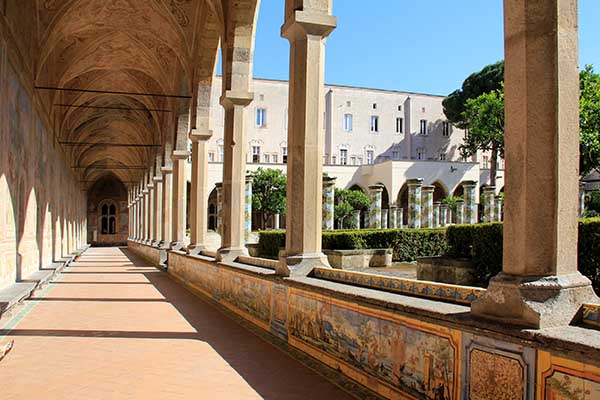 The Santa Chiara Monastery in the center of Naples
The Santa Chiara Monastery in the center of Naples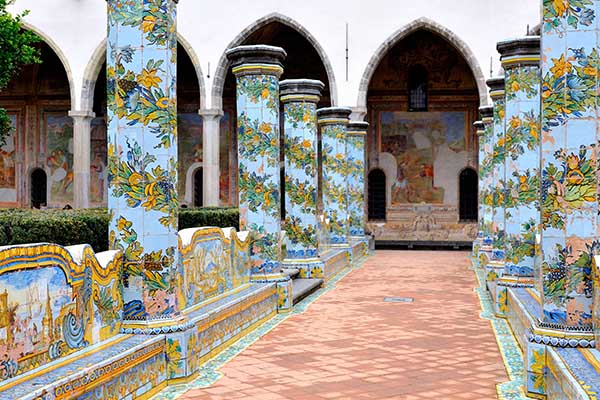 The beautiful tile work in particular makes the Santa Chiara worth a visit
The beautiful tile work in particular makes the Santa Chiara worth a visitThe transformations of the monastery in Naples
In 1742, the monastery had big changes by architect D.A. vaccaro. A more baroque style with pompous upholstery was chosen. During the Second World War, on August 4, 1943, the monastery was almost destroyed by aerial bombardments. A quick restoration was carried out and it was given its original Gothic style. The monastery reopened 10 years later. Over the centuries, there were more transformations. The main one can be awarded to D.A. Vaccaro with octagonal columns covered with ceramic flower decorations.
What to see in the Santa Chiara?
The columns are connected to each other with benches. The benches are covered with rural, maritime and mythological scenes, making the monastery a favorite place to be photographed. On the four walls of the monastery you will find 17th century frescoes. Frescoes depicting images and scenes from the Old Testament. In the monastery itself there is a nativity scene with shepherds from the 18th and 19th centuries, a museum, a number of treasures that survived the bombings and an archaeological part of the Roman period.
Where is the Santa Chiara in Naples?

